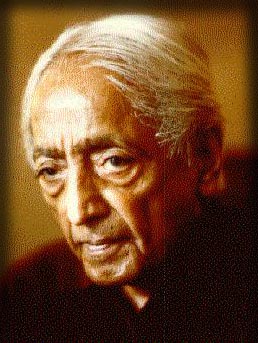After the slaughter in Paris I called a Portuguese friend in the Azores who had lived for nearly 20 years in California. We hadn’t talked in nearly half a year, but immediately communicated beyond words. There were long silences when words seemed not just superfluous, but wholly inadequate.
 We remained with everything, and came to nothing. Our unspoken question was where things are going. We didn’t need to ask, didn’t need an answer.
We remained with everything, and came to nothing. Our unspoken question was where things are going. We didn’t need to ask, didn’t need an answer.
It had rained hard in the morning, a welcome early season rain that augurs well for reducing California’s long drought. It was mostly overcast in the afternoon, and was lightly raining near sunset after I got off the phone.
I went outside. It was clear to the west, and sunlight flooded the treetops. Looking to the east I glimpsed part of a rainbow. Thinking little of it, I went into the backyard to see as much of it as I could. Suddenly I was witnessing the most vivid and complete double rainbow I’d ever seen.
My friend and housemate and I had had a fight, but the residue of it evaporated and I went in to get her after being struck immobile by the beauty of the rainbow for a minute or two. We’re lucky if we see 50 rainbows in our lives, and this is the clearest and sharpest one we’d probably ever see, I said. We grabbed our coats and went out.
We stood in the light rain, saying nothing. Every color was pure and distinct in the lower rainbow, whereas the colors of the upper one were smeared together. Both ran from horizon to horizon, a full 180 degrees.
We went into the front yard to get a better view, and if anything both rainbows grew more vivid. Monosyllabically, we wondered, how can there be beauty like this in a world such as this?
But even that juxtaposition was wiped away by the overwhelming sight of the semi-circles of color. “God is color,” I heard someone say once, and fully saw for myself the truth of it.
The meditative mind does not offer escape from the world. Indeed, it makes the world more painful and less able to be distanced from oneself. One is less able to separate oneself from suffering, sorrow and the unspeakable, increasing tragedy of the human condition.
That distancing, which was sadly summed up by another friend who said in reaction to the latest terror, “oh well,” has the same root in killers and bystanders alike. That isn’t ‘moral relativism,’ it’s the truth. To seriously undertake to understand psychological separation within oneself is to no longer contribute to the consciousness that gives rise to war and terror.
Such understanding is much deeper than the intellectual, philosophical level, though it involves them. If the heart still beats within a person, if one isn’t inwardly dead, clear and logical explanations of the human mind and brain can augment spiritual growth.
The relationship between the brain and the mind is probably the most vexing problem in philosophy and science. Philosophically speaking, it’s  important to have clear definitions and distinctions; meditatively speaking, it’s important to let them go completely.
important to have clear definitions and distinctions; meditatively speaking, it’s important to let them go completely.
Take this passage from the religious teacher Krishnamurti, for example, which gives an intimation of tremendous insight. It is, to my mind at least, philosophically unclear even as it is meditatively lucid. “Mind alone sees the whole and within the field of the mind is the brain; the brain cannot contain the mind, do what it will.”
To interpret what someone says is one thing, to see beyond words for oneself the truth or falseness of it another. I’m not interested in interpreting other teachers, much less so-called holy texts. (No text can be holy, and the idea of scripture—“the word of God”—whether Christian or Islamic, is a main source of division, conflict, war and terror, anathema to the authentically religious mind.)
Without getting into the question of whether there is mind without brain, my understanding, as best as I can express it in words, is to point toward the mind-as-thought as one movement, and the capacity for mind-as-not-thought in the brain as another.
The mind-as-thought evolved conscious separation for utilitarian purposes, but carried over psychologically, it became and continues to be the ancient habit of division. Seeing when to separate for use, and stopping there, means ending the projection of division within oneself. Then one is no longer psychologically and emotionally contributing to the terror of war and the war of terror.
But can we as ordinary human beings stop dividing? Or is it, as a Delta Airlines ad sonorously but rather malevolently intones?—“There is no stop in us. Or you. Only go.”
When the movement of thought in the brain is completely quiet, there is a completely different quality and meaning to the word mind. So even though it’s meditatively clear what Krishnamurti means, I feel it’s a mistake to equate and conflate the brain with the mind-as-thought.
The brain and the Mind (capitalizing the word to make a distinction, not referring to “the Mind of God”) are in harmony when the fragmenting, specializing mind is deeply quiet through undirected attention to its movement. In this sense, the brain cannot contain the Mind because the brain is inseparable from and in direct contact with the immanent cosmic mind.
In that state of wholeness, there is love beyond all knowing. Love is not preferential and particular. That’s utterly false, and willfully preaching it also lies at the root of evil.
Martin LeFevre

